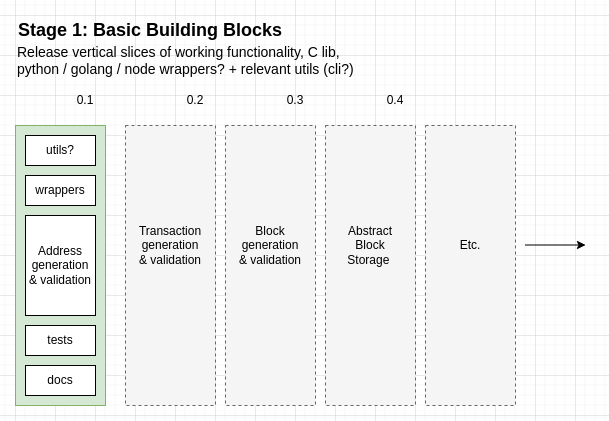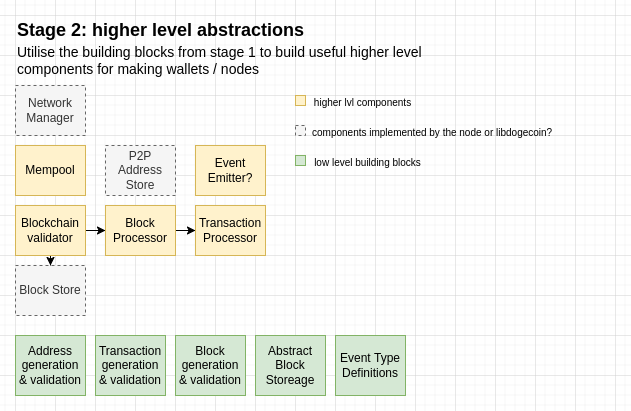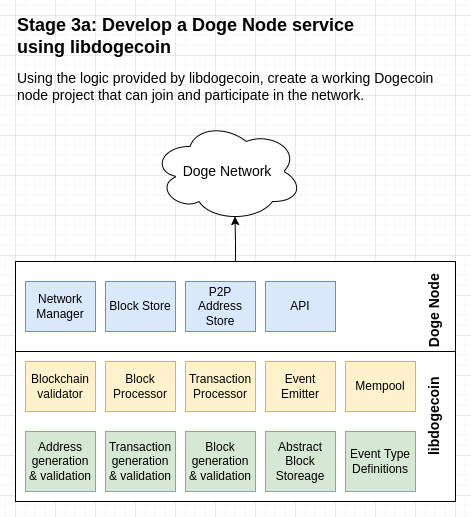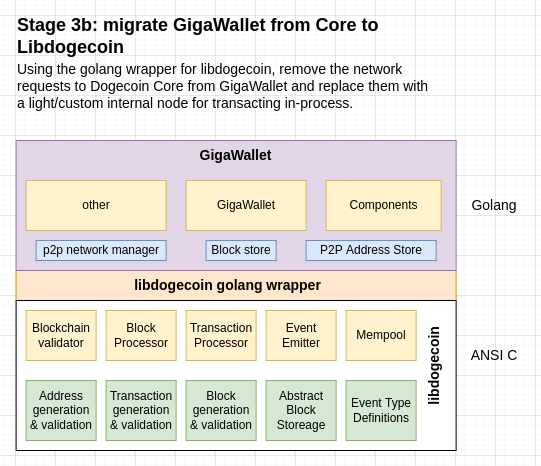Project stages
We understand that there's a steep lerning curve for most of the folk working on this project, and that's OK. This is an inflection point for the Dogecoin community: moving from a tiny dev team to a wider #dogeDevArmy is great for derisking the bus-factor aspect of Dogecoin. The process of creating libdogecoin is an important step toward a broader and more sustainable community of devs.
With that in mind we're suggesting a staged approach to this project. Starting with the basics and delivering working vertical slices of functionality as a useful C library with a handful of higher level language wrappers early, should force us to solve fundamental concerns such as language wrappers, testing and other issues before getting too far down a rabbit hole.

Stage one lets us learn and understand the lowest level building blocks of Dogecoin as we build each slice of functionality and deliver incremental releases with full tests, doc and perhaps even commandline utilities that exercise them. We expect that this approach will gain momentum after the first and second 'slice' as we face and solve the problems of library design, building effective language wrappers etc.

Stage two makes use of the low level building blocks we've delivered by combining them into higher level components that are needed to build wallets and nodes. This is where we deliver the parts needed for other members of the community to cobble together operational doge projects.

Stage three A takes what we've built and uses it to create a new Dogecoin Node service (in C) capable of joining the network and participating in the blockchain. The plan is to make this new DogeNode available for Windows, Linux, MacOS etc. in a simple-to-setup manner that will encourage new users to support the network.
This DogeNode should be far simpler to maintain, being abstracted from the many 'and the kitchen sink' additions that encumber the Dogecoin Core daemon.

At the same time, GigaWallet which is being built around the Dogecoin Core APIs can be easily ported to libdogecoin so it can operate directly on L1 to transact dogecoin. This will be the first major project using libdogecoin via a language binding, and prove the ability for libdogecoin to enable greater flexibility in how the community can get involved in development.